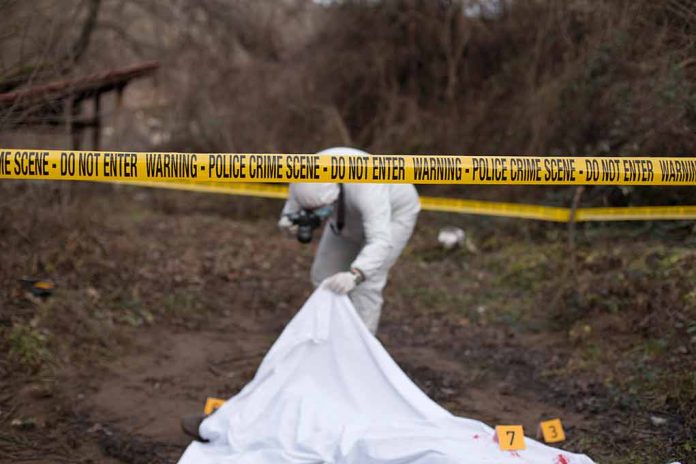
Unraveling the mystery of recently discovered human remains in New England stirs community theories and law enforcement vigilance.
Key Takeaways
- Authorities in New England face mounting pressure as rumors of a serial killer spread due to limited information on recent discoveries of human remains.
- Social media groups fuel speculation, but law enforcement maintains there is no evidence of a serial killer or public threat.
- Former FBI instructor Scott Duffey advises caution but dismisses the serial killer theory, pointing to a lack of evidence.
- Authorities continue investigations, including a Connecticut arrest unrelated to the alleged killer cases.
- Community vigilance is advised to prevent unnecessary panic and spread of misinformation.
Community Anxiety Heightens
Over two months in 2025, twelve human remains were discovered across Connecticut, Rhode Island, and Massachusetts, sparking fears and speculation. Authorities have been restrained in providing information, leading many to consider the possibility of a serial killer. Despite no evidence supporting this theory, the lack of transparency has spurred public concern, reflected in the rapidly growing private online community discussing potential hypotheses.
Caution advisors suggest implementing precautionary measures, particularly in vulnerable settings. “From what I’ve seen or heard, first and foremost, not enough is being put out there, so we’ll continue to create that serial killer idea,” Scott Duffey stated, highlighting that while public fear is rising, definitive connections between the cases remain elusive.
New England serial killer fears: Massachusetts investigators identify body pulled from river https://t.co/8RtWKLCbP2
— Fox News (@FoxNews) April 30, 2025
Social Media’s Role in Speculation
The potency of social media in spreading these rumors is evident. A Facebook group devoted to the theory of a New England serial killer has swollen to nearly 70,000 members. Posts and theories within these platforms have reached local law enforcement, occasionally prompting investigations into tips and claims that ultimately led to dead ends, as demonstrated in Rhode Island’s Scarborough Beach search.
“It doesn’t take a lot to create a conspiracy. And when you have a vacuum of information… and then one person puts out, really, somewhat of a logical idea, and then it catches, and then people start following that idea even though there’s no evidence to back it up,” according to former FBI instructor and certified police instructor Scott Duffey.
This surge of online activity underscores the crucial need for accurate information dissemination. Experts urge trust in law enforcement to carry out thorough investigations while keeping the community informed of credible developments. Nevertheless, escalating internet dialogue could continue to challenge official narratives.
A New England serial killer? What crime experts say about rampant rumors and speculation https://t.co/2CgIwyHAxu
— Newport Daily News (@TheNewportDaily) May 1, 2025
Ongoing Investigations and Official Stance
As authorities statewide scrutinize the twelve cases, the only confirmed arrest relates solely to Suzanne Wormser’s death in Connecticut, a crime not connected to the rumored serial links. Connecticut State Police clarified that the skeletal remains found have been added to a missing persons database, with no links to a larger threat.
Local law enforcement encourages the community to remain vigilant and avoid abetting rumors that could incite fear. Publicly addressing both factual findings and misleading reports remains a complex balance for communicators handling these sensitive issues.
Sources:
- Is there a New England serial killer? Former FBI agent reveals his theory
- Groton police debunk serial killer theories across New England
- Is there a New England serial killer? Former FBI agent with regional ties reveals his theory







